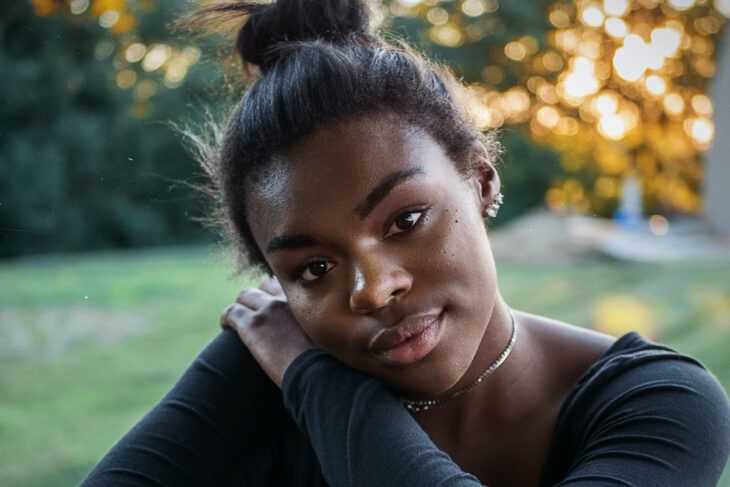Young people and the pandemic: living with addiction

Substance misuse rarely ever affects just one individual. When a person misuses drugs or alcohol, it is often children, partners, parents, siblings, friends and neighbours who suffer as well.
That’s why, when the pandemic struck and the UK was put into lockdown in March 2020, we had significant concerns around access to support for young people living with their own or someone else’s addiction.
Exposure to addiction, especially in the home environment, can have lasting and devastating consequences on physical and mental health, educational attainment, social development and much more. It can even lead some to start using substances themselves at very young ages, perpetuating cycles of harm through generations. Research from Adfam tells us that children affected by parental substance misuse are seven times more likely to misuse themselves.
Responding to keep young people safe
With people trapped at home, having no access to support or opportunity to escape from the impact addiction was having on their lives, we feared the toxic effects of addiction would be intensified or increased, potentially beyond breaking point.
Our first response was to create a free young person’s online support page, which reiterated three key messages:
- You are not alone
- It’s ok to have lots of different feelings
- It’s important to keep yourself safe
The resource contains information, advice, vlogs and useful contacts for young people and children looking for support. However, we knew that this was never going to be enough.
Rethinking services for a virtual environment
Other existing support and interventions had to be completely rethought to make them suitable for a virtual environment. We advised our staff and other professionals in the field to use a phone or video call, or whatever other technology was available. Staff were asked to focus on healthy coping strategies with clients through this difficult period until families could engage in specific support interventions like our structured family support programme, Moving Children and Adults Together (M-PACT). We encouraged people to think about the support networks that were available to them, the importance of communicating clearly with others, and the needs of their family members. We also helped people to identify safe spaces in the home, numbers to call, and alternative coping strategies.
Our M-PACT programme is now going through a digital transformation as we wanted to address the barriers faced at the start of the pandemic. In response to this crisis, we are developing a blended version of the programme which gives families the option to complete 50% online and 50% face to face, supported by fully trained practitioners. This will be offered alongside our full face to face programme, which means families will have greater choice in how they engage with support moving forward, helping to flexibly meet multiple and diverse needs.
The impact of lockdown on emotional health
We now find ourselves in summer 2021. While the exact scale of consequences resulting from the suspension of public and other services during the last 15 months is yet to be known, we are starting to see some hard evidence the impact lockdown has had on the emotional state of children and young people. Loneliness, anger, anxiety, family arguments, increased screen time, less physical activity, poor sleep and psychological distress have all been reported as negative outcomes of the pandemic so far (Morgul et al, 2020). Already commonplace in families affected by addiction, it is unsurprising that these feelings have been magnified.
Meanwhile, our recent YouGov poll found equivalent to 1.5 million people could be experiencing problems associated with increased drinking of alcohol during lockdown. The consequences involve break down in relationships, impacting families and children. 38% of this group said they would find it difficult to resolve these problems associated with their increased drinking.
Worryingly, our results also indicated that up to 1 million children and young people between the ages of 12-25 could themselves have shown an increase in addictive behaviour during lockdown, a significant increase from the previous year. 33% of those polled said that the individual’s close family are likely to need support services as a result of this behaviour. For the UK this would mean over 600,000 families needing support and access to services.
Next steps: learning from the pandemic and taking action
The figures confirm a rise in the need for services, not just for children and young people living with a family member’s addiction but, increasingly, their own.
In November 2020, the House of Lords Public Services Committee published a report outlining the lessons that must be learned from the pandemic. It states:
Before COVID-19, vulnerable children were falling through the gaps between public service providers, ‘invisible’ to social services, the NHS and the education system. Many more have become ‘invisible’ during the pandemic since losing contact with public services.
We have offered our support to this, and two young people who have been affected by parental addiction and attended our M-PACT programme have this month given evidence to a Select Committee looking into the role of public services in supporting vulnerable children. We hope their stories will help to highlight not just the existing need and vital requirement for addiction services, but also the urgent action required in the wake of the pandemic. As the government consider its response to Dame Carol Black’s review into drug treatment and wider recovery from the pandemic. priority must now be given to addressing the impact lockdown and other measures have had on children and young people living with their own or another person’s addiction.